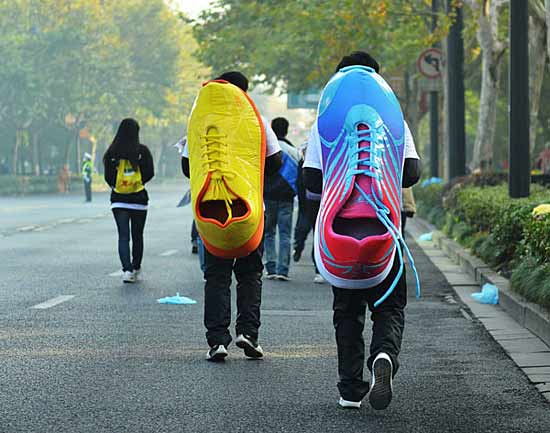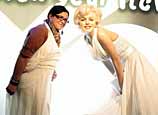
 |
| People ran with models of running shoes on their back at the Hangzhou International Marathon in Zhejiang's provincial capital, on Nov 18, 2012. [Photo by Long Wei / For China Daily] |
Liao used to be a Tier-2 national track-and-field athlete. "It's a skill-based endurance race and requires an outstanding physique," he explains.
Runners should undertake professional training for at least two months - preferably half a year - before the race.
They should also make sure they don't have any chronic or metabolic diseases, such as heart disease, diabetes, high-blood pressure or obesity.
And contestants shouldn't push themselves too hard and stop if they believe the distance is too much, he says.
It's worth recalling that the legendary Greek runner, whose story gave rise to the marathon tradition - he's said to have dashed the full distance without resting to deliver a message - died from overexertion, Liao says.
Xu Qiong, a public relations executive in Beijing, had a painful experience when running the Beijing International Marathon last year.
The 28-year-old is a former soldier, who ran 5 km every morning - without difficulty - in the army. Since leaving the force in 2007, he has continued exercising regularly, swimming and playing badminton.
Xu was so confident in his physique that he didn't undertake training beforehand and ignored the official website's warnings.
"I signed up for the half-marathon and ended up only finishing the mini," he says.
"It was totally different from what I'd expected."
Xu ran fairly fast at first. But he quickly felt it was increasingly difficult to keep that pace. He started walking after 7 km and never resumed running.
















 10th China Int'l Automobile Exhibition kicks off in Guangzhou
10th China Int'l Automobile Exhibition kicks off in Guangzhou


![]()
